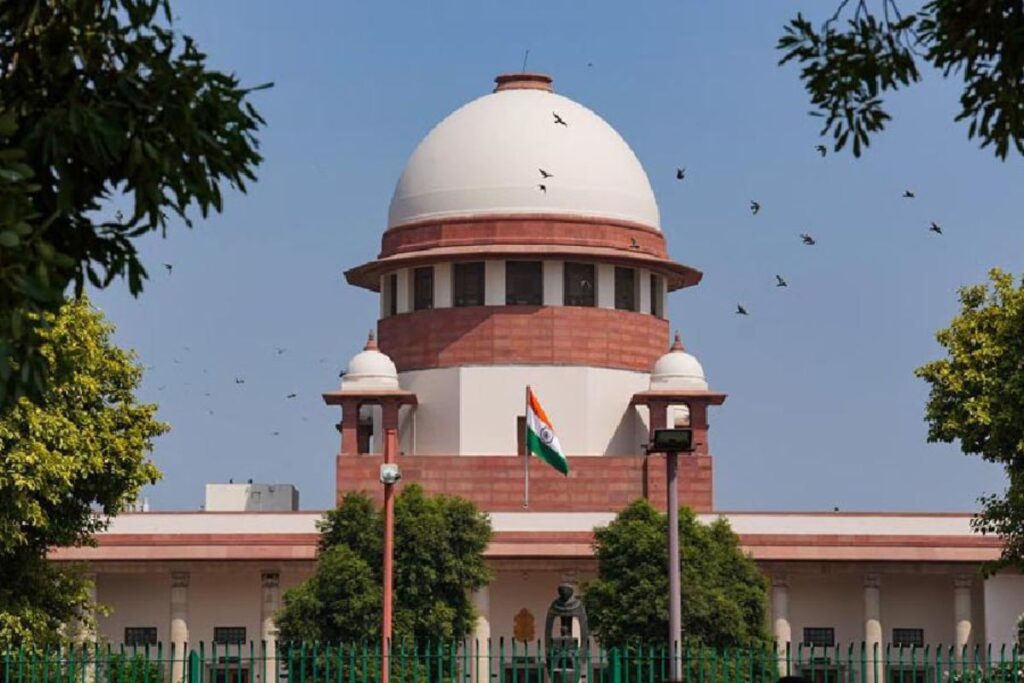Jahanvi Agarwal
The Supreme Court, in a hearing conducted on 17th September 2024, declined to entertain two Public Interest Litigation (PIL) petitions that challenged the constitutional validity of three newly enacted criminal laws which replaced key legal frameworks, namely the Indian Penal Code (IPC), the Code of Criminal Procedure (CrPC), and the Indian Evidence Act. These laws have been restructured under the names Bharatiya Nyaya Sanhita (BNS), Bharatiya Nagarik Surakhsa Sanhita (BNSS), and Bharatiya Sakshya Adhiniyam (BSA).
A Division Bench comprising Justices Surya Kant and Ujjal Bhuyan, while dismissing the petitions, took issue with the poor drafting quality and the lack of substantial research backing the arguments raised. The Court emphasized the gravity of the subject matter, stating, “This is a serious issue. What kind of petitions are both of these? Please draft it well… We cannot enter the domain of Parliament”. Justice Kant further remarked on the need for better preparation when challenging the constitutional vires of new laws, urging petitioners to conduct “thorough research.”
The petitioners were granted the liberty to withdraw their petitions and refile them with a more comprehensive and well-researched challenge. The Bench allowed the petitions to be withdrawn with a directive, stating, “We allow the petitions to be withdrawn with liberty to file a comprehensive petition on the said issue.”
One of the petitions was filed by two Delhi residents, Anjale Patel and Chhaya, while the second was filed by Vinod Kumar Boinapally, a leader of the Bharat Rashtra Samithi (BRS). The first plea raised concerns about the ambiguity in the titles of the newly enacted laws and called for an expert committee to evaluate the viability of these laws. It also pointed out potential issues for the legal fraternity, highlighting how the new laws would lead to increased workloads, greater complexity, and a need for continuing legal education.
Boinapally’s petition, on the other hand, criticized the new laws, arguing that they were essentially “old wine in a new bottle” and could have severe repercussions on law and order, as well as the life and liberty of individuals. He contended that key stakeholders, such as States and Union Territories, had not been adequately consulted during the drafting process. He also argued that several provisions of the laws, including Sections 15, 43(3), 94, 96, 107, 185, 187, 349, and 479 of BNSS; Sections 113, 152 of BNS; and Section 23 of BSA, were unconstitutional and should be struck down.
The Court has shown caution towards prematurely entertaining challenges to these laws. In an earlier case, on May 20, Justices Bela M Trivedi and Pankaj Mithal had dismissed another petition challenging the same laws, noting that they had not yet come into force. The Court had criticized the casual drafting of that petition, stating, “Laws are not in force. How can you file such pleas drafted in a casual manner?” Similarly, a plea in February challenging the same laws was also dismissed by a Bench headed by Chief Justice of India DY Chandrachud, along with Justices JB Pardiwala and Manoj Misra.
Case Name: Anjale Patel and Anr v. Union of India and Anr; Vinod Kumar Boinapally v. Union of India and Ors.
Bench: Justices Surya Kant and Ujjal Bhuyan

